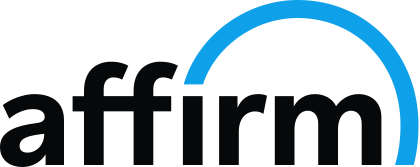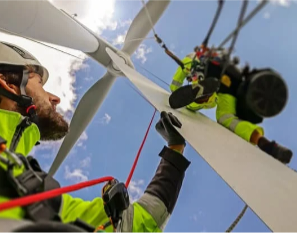 When putting together your logistics manager resume (or any resume for that matter), it is important that your reader easily sees where you solve their biggest problems. Think of it as providing missing pieces to a puzzle. We are basically trying to say, “you have xyz problem, and guess what – I can solve it for you!” I mean, isn’t that the primary job of a resume?
When putting together your logistics manager resume (or any resume for that matter), it is important that your reader easily sees where you solve their biggest problems. Think of it as providing missing pieces to a puzzle. We are basically trying to say, “you have xyz problem, and guess what – I can solve it for you!” I mean, isn’t that the primary job of a resume?
Logistics management is essential to the financial success of most any business. By tracking each step of a company’s workflow, one can more effectively coordinate the production and delivery of goods, supplies, and materials.
Your mission (should you choose to accept it) is to develop a resume that convinces hiring managers that you have the goods to help them to do just that. Below are 5 key concepts for inclusion in your logistics manager resume:
🔹🔹🔹
Cradle-to-Grave Lifecycle Logistics Support
We need to make it obvious to those reading our resume that we can operate an efficient, cost-effective, and customer-focused supply chain. That means from the initial sourcing of raw materials to the monitoring of quality control and timely delivery of finished goods. Does your resume communicate your ability to track, monitor, and provide accurate information regarding each stage of the logistics process critical to ensuring a smooth and successful supply chain operation?
Demonstrating your mastery of cradle-to-grave logistics support shows your ability to manage or even reduce costs associated with shipping, while minimizing supply chain disruptions. Now you have a hiring manager who is confident you will help to improve on-time and quality metrics, raising customer satisfaction.
Contractor Milestone Monitoring
The logistics industry is complex and involves plenty of participants, many of them being contractors. As such, a critical skill to demonstrate on your logistics manager resume is the ability to manage and track contractor performance. Hiring managers will want to know that you can establish key performance indicators (KPIs) based on specific project requirements so that you can benchmark their performance. As such, taking the time to communicate your ability to track delivery time, cost per unit, number of orders fulfilled on time, and inventory accuracy can be the difference between getting in the interview door and wandering the job search wilderness for another month.
So, for example:
📜 Do you have success in establishing clear communication protocols between your employer and contractors?
📜 Did you communicate regularly to discuss performance and relevant data?
📜 How about your skills with software to track shipments and performance (such as GPS tracking systems)
Process Flow Improvement
Want to impress someone reading your logistics manager resume? Make sure you point out your successes in optimizing process flow. So, what is logistics process flow?
“A logistic flow is a system of organization designed to maximize the efficiency of production and distribution processes within a warehouse.”
By minimizing waste, this system ensures that resources are used as effectively and cost-efficiently as possible. Those hiring managers will be interested in your ability to develop creative, cost-efficient logistic plans tailored to specific customer needs, as well as work with internal and external stakeholders to ensure effective and efficient communication. Consider the following questions when crafting your document:
📜 Have you developed and implemented process improvement initiatives such as Lean Manufacturing, Kanban, and Six Sigma?
📜 How about creating and maintaining SOPs, policies, and procedures for logistics operations?
📜 Any expertise in preparing performance reports, cost analysis, and submitting data-driven recommendations.
📜 Have we designed and oversaw any employee training programs to expand your team’s understanding of the logistics process?
Transportation Routing
This is another key component of logistics management and is an important process for ensuring efficient delivery of goods. Your logistics manager resume should show your understanding of the steps necessary for creating the most efficient route for transporting goods from one point to another.
Hiring managers need to see your ability to manage the routing process with consideration for factors such as delivery time, cost, and size of shipment, as well as other logistical factors such as regulations and licenses. All so you can map out the best routes.
Does your resume convey your skills in:
📜 Identifying and comparing potential carriers for on-time reputation, type of equipment used, and cost of services?
📜 Negotiation skills and delivery contract knowledge?
📜 Experience refining the shipment details coordination process involving packaging and labeling requirements, payment terms negotiation, and document preparation (bill of lading, customs paperwork, etc.)
Loss Prevention
Someone considering bringing you on board as their logistics manager will need to know you can ensure that losses in the supply chain are minimized and that all shipments reach their destinations on time and in good condition. So, communicating your mastery of the loss prevention aspect of the job is paramount. While is this aspect of the job so important to your resume’s reader? Because logistics loss prevention practices have been found to reduce theft losses by up to 70%.
The cost of goods lost due to theft in US warehouses and distribution centers is estimated to be between $30 billion and $50 billion annually. Also, it is estimated that up to 5% of inventory is lost in the supply chain due to theft or mishandling.
When composing that logistics manager resume, be sure to feature your ability to develop and implement effective risk management strategies to reduce the chances of theft and other losses. The hiring manager will need to know your success in implementing protocols involving organizing regular security inspections of warehouses, transportation vehicles, and other facilities, and development of safety protocols to prevent accidents and unauthorized access.
So, consider including any highlights on the following:
📜 Improvements in shipment packaging and integration of GPS tracking systems, security alarms, and tamper-proof seals.
📜 Successful investigations led regarding potential losses and working with stakeholders to identify root causes and find solutions.
📜 Procedures or policies developed to address high-risk shipment areas
📜 Training conducted to raise awareness of effective loss prevention strategies to the team.
📜 Tracking of loss prevention system performance by keeping records of incidents and analyzing them to look for trends and patterns to determine needed system improvements.
📜 Issues resolved regarding improper storage and product packaging damage to eliminate potential product contamination.
🔹🔹🔹
The opportunities are out there for you. According to the Bureau of Labor Statistics, employment of logisticians is projected to grow 28% from 2021 to 2031. But as always, the question will be how close you can get to the front of the line with your resume. Only about 8-10% of applicants get into the door. So, take the time and build out your resume strategically to ensure you’re one of those in the interview chair. 🍻













